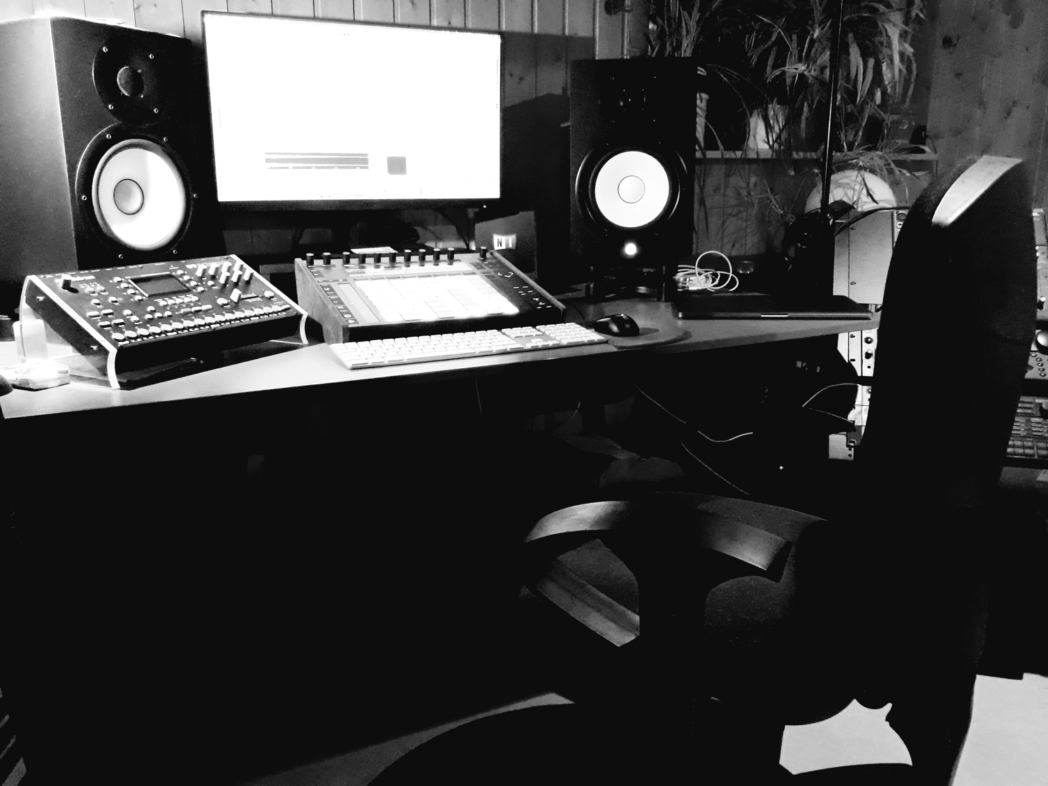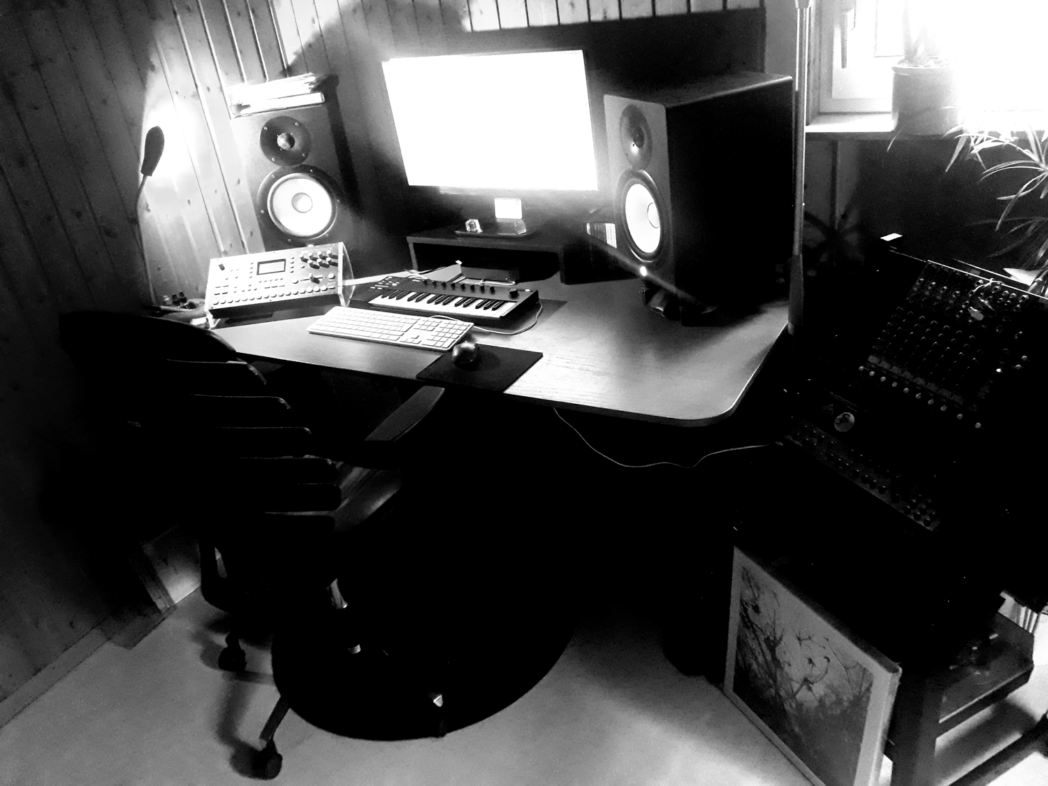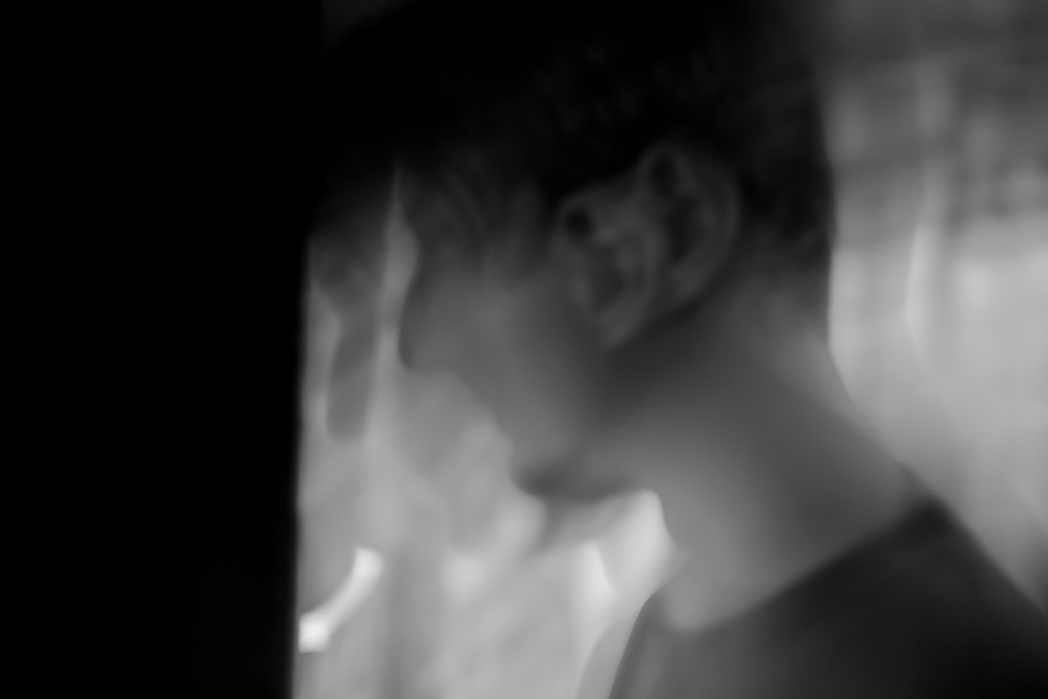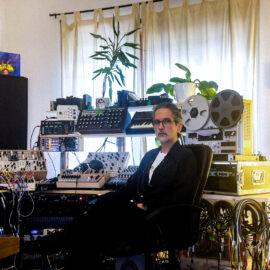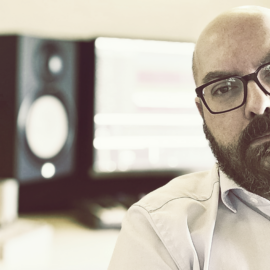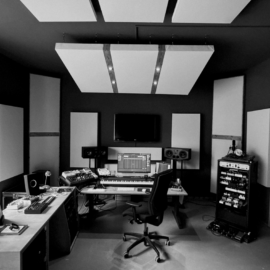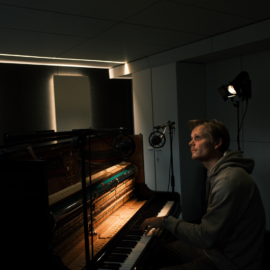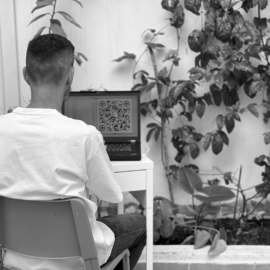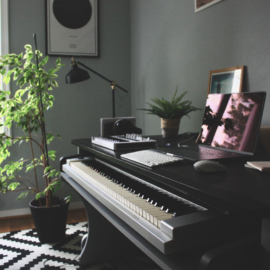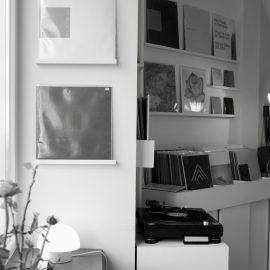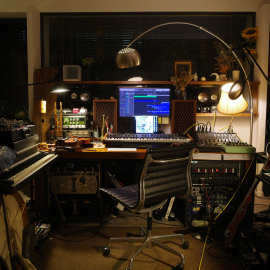Let’s start at the very beginning. Can you tell us how you got involved in composing, and what was your very first piece of gear?
My musical activity started relatively early (as a teenager) with acoustic guitar and, later, electric bass. I slowly got into music composition when I bought my first drum computer (Boss Dr. Rhythm 660) at the age of 16 or 17… At that time, it was much more complicated and expensive to buy a setup with which you could start producing electronic music. It took another 2–3 years until I had a sampler and everything else together, and I felt like I could now create tracks that weren’t constantly missing something… Nevertheless, I’m happy to have had such experiences of lack because you often had to make do to achieve results, which is hardly conceivable from today’s perspective.
How many different studio iterations have you gone through, and what does your final setup look like right now?
Phew, I can’t say that exactly anymore… In the first few years, it was mostly hardware (EMU sampler, TC Electronic effects units, Mackie mixers), and I also tried out a lot of synths, only to realize years later that synths don’t really take me where I want to be. Sampling has always been important to me and has become more important over the years… I think it was around 2015 that I (initially experimentally) centered my entire environment on Ableton Live (which I had already been using for years), and then I got stuck. In the beginning, I wondered whether and how it would be possible to produce a complete album (which became Irradiance) using only Ableton Live. Over the last few years, I’ve added a few plugins from time to time, but yes, most of my music is created in Ableton Live. There are so many ways to create new music within the DAW.
Tell us about your favourite piece of hardware.
I’ve been using less hardware for some time now, but I already have a favourite, namely the E-Synth Sampler from EMU Systems. I have owned several of this series; the E-Synth is still here. What I found unique about it was the filters available in the device. The modulation matrix is also very wicked, and I always thought the preset layering options were very cool. Maybe I’ll switch the sampler on again soon and have another go at it.
And what about the software that you use for production?
As mentioned above, my work on the software side is mainly based on Ableton Live (with MaxForLive). I also use some third-party plug-ins such as soothe, spiff or bloom (from Oeksound), Slink Filter (Hypnus), various Valhalla tools, Split EQ (Eventide), MSpectral Delay (Melda Production), and Pulsar Massive. Much of it is organized in FX Racks so that I can access it relatively quickly when needed. Native Instruments Komplete also plays a role in my digital working environment. In recent years, EQs have become more and more important to me, which used to be rather secondary. And tools like PaulXStretch are certainly also used from time to time… But essentially, these are the tools I spend the most time with.
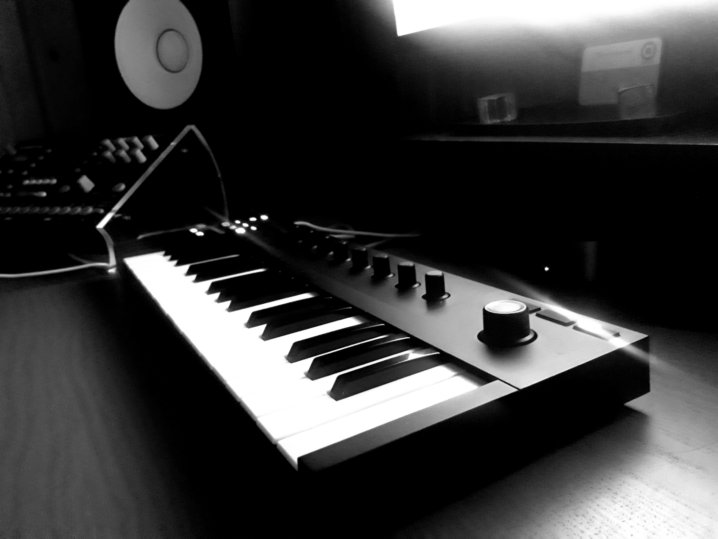
Is there a particular piece of gear that you’re just dying to get your hands on, and do you think one day you’ll have it?
There’s actually nothing I can think of off the top of my head… I’m more interested in results; the tools that lead to the result are important but shouldn’t be overrated either, at least from my point of view.
Can you please share some aspects of sound design in your work?
Some time ago, I increasingly split my work into different projects. For my latest album, for example, I have placed great emphasis on a certain mood from the dub area with ambient textures that I have formulated in recent years. A key approach for Retrace was, therefore, to use effects such as reverb and delay in a different way. I also pursued a more radical approach to stems while working on the album. So, I recorded different versions of a sound figure and then subsequently transferred the best parts into a coherent overall picture for me… After a few years of abstinence, I also started using beats again, but much more discreetly than in previous years. Sometimes, it makes sense not to pursue certain things so that after a while, you can look at them with a different focus. There are already three completed projects for 2025, each of which I have worked on with other musicians. I have been trying for some time to develop different approaches to my sound design in different constellations. I like the idea of “slipping into different roles”; I think that it is very productive for my musical expression at the moment.
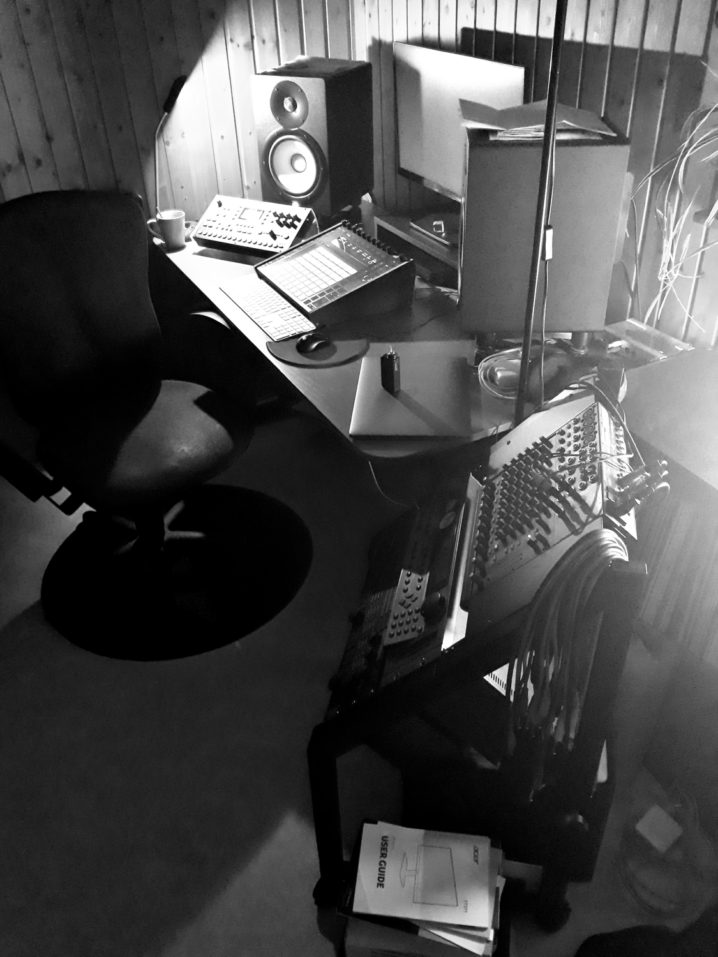
Any particular new techniques that you tried out for your new album?
In my opinion, there is no particular technique that I have used, but I try to refine certain work routines. When mixing, I try to think more about how far you can edit elements in terms of sound and how much resonance you can extract from an element in order to be able to represent the essence of the desired sound. In the past, I was often happy to be able to layer two sounds together… Now the demands are changing noticeably… I have spent a lot of time in the mastering studio (Artefacts Mastering) over the last few years, which I feel has helped me a lot to get closer to my own sound… But of course, the path to get there is never-ending; you always want to move on and learn new things…
What does your live setup look like, and what do you bring with you when you travel for an extensive tour?
I limit myself to the tools that are essential for me (Ableton Live, Macbook, controller, sound card), which is practical in terms of luggage and also honest because my music is not created with modular systems or similar. But who knows how the setup will change in the future… or I might have to play gigs with an artist friend…
What is the most important environmental aspect of your current workspace, and what would be a particular element that you would improve on?
To be honest, I’ve never had a space that was perfect from a sound point of view. However, it helps to be able to assess the given circumstances well… Recently, I bought headphones that allow me to check the mixdowns even better.
What can you tell us about your overall process of composition? How are the ideas born, where do they mature, and when do they finally see the light?
In general, I come less from the music theory side; I have no training in music or composition. It was always a personal interest that made me learn things. That’s how I found a rather sporadic approach to composing—a lot of it came about through listening and imagining how these things might have been realized… However, I don’t see this as a disadvantage but rather as a creative achievement because you didn’t always have to know what you were doing and which way to go in order to achieve the desired result… This approach also sometimes leads to unexpected results through mistakes, which can be extremely exciting. I never used to ask myself whether I was composing in a minor or major key, but I later found out that my pieces are often in a minor key…
As far as working methods are concerned, I am clearly influenced by the use of the sampler. I would prefer a sampler to any synth; it comes closer to my approach to music, it leaves room for the unexpected, the experiment… and then deciding whether it just sounds crass or whether it can actually be relevant to a piece. I’m working on ideas more and more in parallel, often collecting material in advance to come back to later… Some never see the light of day; others need a certain amount of time to mature… I like to work on organized material and then be able to approach it with a less involved perspective… In the past, I’ve sometimes found that I can get too caught up in an idea, and my workflow is blocked as a result. On the other hand, when I’m busy with partially conflicting projects, it makes decision-making easier for me because I can look at what has been achieved so far from a bird’s eye view… So, working in opposite directions seems to get me to my goal faster.
After the piece is complete, how do you audition the results? What are your reactions to hearing your music in a different context, setting, or a sound system?
In addition to listening on different headphones, I often take the opportunity to go to the mastering studio to listen to the material together with Gio (mastering engineer)… to draw conclusions about what needs or could be given more attention in the long term, where the weak points are, what has worked well… And after mastering, I logically also listen to the tracks to realize the difference and the improvement… A few years ago, however, I sometimes spent too much time on the result, whereas these days, I move on to new projects more quickly in order to learn new things.
Do you ever procrastinate? If so, what do you usually find yourself doing during those times?
It sometimes happens to postpone things… I usually end up making music instead of doing what I would normally do.
What gets you inspired?
Nature is a great source of inspiration for me, whether it’s the changing seasons, walking in the forest, mountain landscapes, the sea, the clouds… The natural cycle is all-encompassing and gives me so much inspiration. It is very important for me to go out into nature, to escape the tunnel vision of the computer and to draw new inspiration at the end, which is then processed again in the computer… Communication with people or an interesting book can be similarly inspiring for me. All the external influences mix with personal feelings, and then what happens on an emotional level is what is reflected in music… Inspiration also comes from buying a new tool (as long as that doesn’t happen too often). Things that you really learn to appreciate because they have an obvious use for your own work are definitely drivers of inspiration on a technical level…
